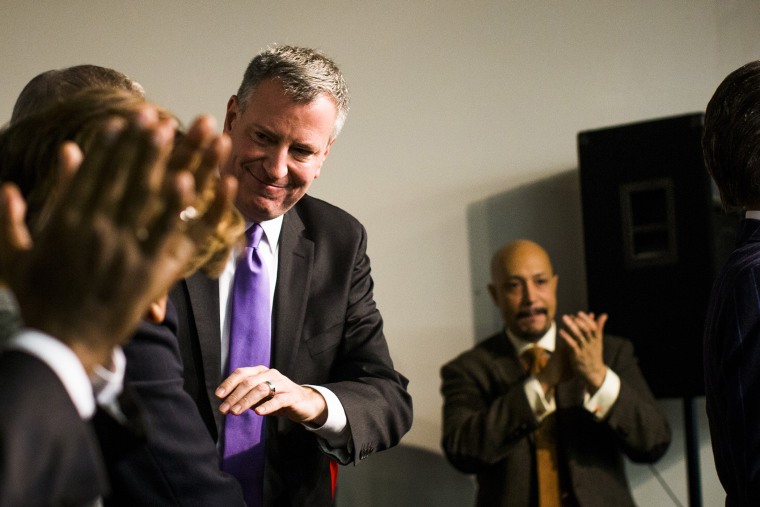In the latest indication of the incoming mayor's committment to the less advantaged of what he characterizes as New York's "two cities," Bill de Blasio has invited to his inauguration the mother of an 11-year-old homeless girl, Dasani, featured in a lengthy New York Times examination of living conditions in New York City homeless shelters.
The story drew national attention for its description of the homeless family's unsafe, unsanitary, and downright threatening situation, as well as for its illustration of America's ever-widening income gap.
De Blasio's invitation follows his citing the plight of the young girl and those like herin a speech earlier this month. “If you ever needed an illustration of what the tale of two cities is all about, there you have it. We are simply not going to allow this kind of reality to continue,” he said.
Though outgoing mayor Michael Bloomberg was critical of the Times' subject as "atypical" and "unlucky," Bloomberg's billionaire status and perceived callousness on the matter of homelessness only serve to emphasize the symbolism of Dasani's story and of the contrast between conservative policy that treats America's impoverished and unemployed as freeloaders who lack the motivation to work and the liberal perspective that income inequality is the result of an unfair system.
Last year, Bloomberg contended that the increase in the city's homeless shelter population was due to their desireability: "We have made our shelter system so much better that, unfortunately, when people are in it — or fortunately, depending on what your objective is — it is a much more pleasurable experience than they ever had before."
The Coalition For The Homeless, among others, point to Bloomberg's policies, including not prioritizing the homeless for housing subsidies.
De Blasio's pick for deputy mayor for Health and Human Services, Lilliam Barrios-Paoli, gave voice earlier this month to the change in perspective coming with the new de Blasio administration.
“For a long time, there’s been a very negative perception of who the poor are and we have mistreated them in many ways. We have been punitive. We have assumed that people are poor just because they choose to be poor as opposed to because life happened to them,” she said. “And I think we need to change that attitude because it will never help us solve the problem.”
With one in five American children living in poverty, that is a message with the potential to have national political resonance, particularly as federal policies appear to be making progress against homelessness at the national level and in conjunction with local efforts.
